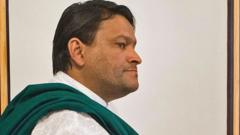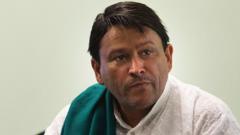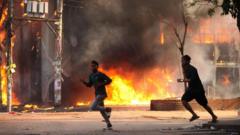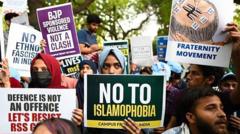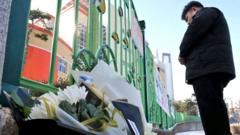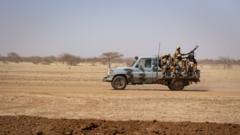In a tumultuous turn of events, violence has erupted in Bangladesh as a student-led movement clashes with supporters of ousted Prime Minister Sheikh Hasina, who communicated from exile in India. The interim government has responded with force as protests spiral.
Resurgence of Unrest in Bangladesh as Ex-Prime Minister Speaks from Exile

Resurgence of Unrest in Bangladesh as Ex-Prime Minister Speaks from Exile
A new wave of clashes erupt in Bangladesh, reigniting tensions between student protesters and supporters of the ex-leader Sheikh Hasina.
Bangladesh is gripped by another wave of violence, ignited by the re-emergence of student protestors who played pivotal roles in toppling former Prime Minister Sheikh Hasina's government last August. The latest unrest was catalyzed by Hasina's audio address to the nation from India, intensifying existing tensions between her supporters and the students.
On Wednesday, as Hasina prepared to speak virtually, a group of students, concerned that her speech would provoke further clashes, took drastic actions, resulting in the demolition and arson of a museum once belonging to her father, Sheikh Mujibur Rahman, a foundational figure in the country’s history. The destruction signaled a strong backlash against the Awami League—the political party that Hasina leads.
The violence escalated over three days, prompting intervention from the interim government headed by Nobel Peace Prize laureate Muhammad Yunus. To regain control, Yunus ordered “Operation Devil Hunt,” deploying police and paramilitary forces to quell the unrest, declaring a need for lawfulness in the new Bangladesh being constructed away from previous authoritarian regimes.
In response to the rising tension, Yunus appealed to citizens to adhere to the law, asserting their collective aim of steering clear from the old "fascist" rule represented by Hasina’s administration. Reports indicate that over 1,300 individuals have been detained amidst the unrest, primarily from the Awami League, while the opposition continues to rally for protests, suggesting the party is not backing down easily.
The Awami League has sought to push back against the student movement, accusing them of being Islamist militants, and invoking historical comparisons to supporters of Pakistan during Bangladesh’s independence struggle. As the situation continues to evolve, both governmental and societal responses indicate a nation at a crossroads, grappling with its past and future under fledgling democratic ideals.

